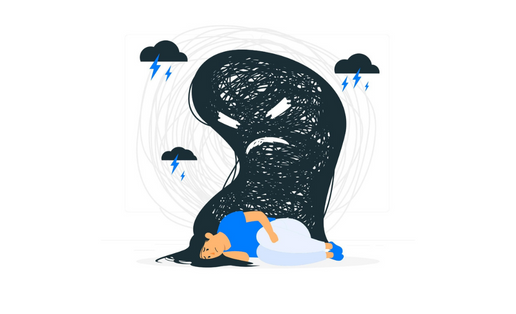
The word psychosis is used to describe conditions that affect the mind, where there has been some loss of contact with reality. When someone becomes ill in this way it is called a psychotic episode. Ever given a thought that maybe something affected you more than you thought, probably only a few did give a thought about this because life goes on so quickly and we might have felt that our mind didn’t process what was actually happening. Yeah, it is tough to process that so much passes by so quickly and staying on track of it is tough.
We feel that our time, experiences, and connections have all been snatched from us in between a time period where we don’t remember anything that actually happened as we failed at processing that time period. We might feel weird about what's going around, where there's a routine or sense of feeling weird as the feeling holds on to us and carries forward, weirding out with reality, it gets hard.
“Your life does not get better by chance, it gets better by a change.”

This is when one feels or craves new experiences and connections at that time. We desperately want to try doing something new in life and tell ourselves that we’re fine or we’re okay and want to continue doing it for the next ten years. We build upon a daily routine and connections that give us newer experiences and we try to sense and process things from a new beginning. We tend to look at it this way as we want to move on from the time that is lost to us that we feel is robbed by us.
Psychosis is not a specific illness, rather it is a syndrome. The central characteristic of psychosis is a loss of reality testing, resulting in some degree of impairment of judgement and abnormal behaviour. People will probably interpret these disturbances differently. Some may see them as symptoms of stress, especially if the changes are connected with some stressful life event and others may see them as part of the person’s personality. Cultural influences may also play a part in how the symptoms of psychosis are explicated. Psychotic symptoms are often attributed to supernatural causes rather than biological causes. The exact antecedent of psychosis is assumed to be connected to neurological and biochemical changes that take place in a person’s brain during their teenage and early adulthood years.
One’s personal perspective of the disturbances will decide if an individual will seek help. Even for those who doubt that it is conceivably a mental condition, the stigma of seeking psychiatric help may make them feel intimidated from consulting a psychiatrist. Research shows that early detection – and treatment – of psychosis are associated with a better prognosis. It can be treated and most people make a good recovery. To end with, one should always remember this -
“One doesn’t discover new lands without consenting to lose sight of the shore for a very long time.”